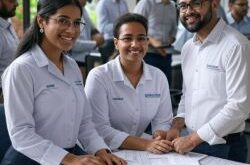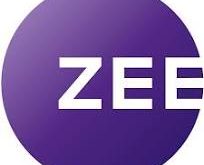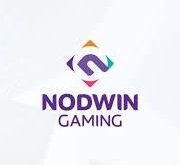As India celebrates World Students’ Day 2025, one thing is clear — today’s learners don’t just study; they upskill, adapt, and innovate at double speed. Fueled by technology and hands-on learning models, a new generation of students is redefining what employability, education, and purpose truly mean. Here’s how India’s education and skilling ecosystem is preparing them to lead the future.
1. From Learning to Doing: The Gen Z Shift
“On World Students’ Day 2025, it’s important to recognize that India’s student community is not just the future workforce they are the architects of an evolving learning economy. The way students learn, engage, and prepare for their careers is transforming faster than ever. Gen Z doesn’t just study they upskill at double speed. They are embracing hybrid education, micro-skilling, and AI-enabled tools to make learning more outcome-oriented and personalized.
At TeamLease EdTech, we are witnessing this shift as students seek learning that directly enhances their employability, and view learning as a lifelong investment rather than a phase. The focus has clearly moved from ‘What am I studying?’ to ‘What can I do with what I’ve learned?’
As India stands on the brink of becoming a global talent hub, the intersection of education and employability will define our next decade. It’s time for academia, industry, and policymakers to work together to ensure that every student has access to learning that is relevant, affordable, and job-ready.
World Students’ Day reminds us that innovation in education isn’t about technology alone—it’s about empathy, adaptability, and real-world impact. When we empower students to connect learning with purpose, we don’t just build careers—we build capability, confidence, and the future of a stronger India.”
– Shantanu Rooj, Founder & CEO, TeamLease EdTech
2. Apprenticeships: The Future of Employability
“India is home to the world’s largest youth population, which presents both an immense opportunity and a responsibility to prepare this demographic for meaningful, future-ready careers. According to the Periodic Labour Force Survey (PLFS) released in August 2025, India’s overall unemployment rate stood at 5.1%, while youth unemployment (ages 15–29) was significantly higher at 14.6%, underscoring a persistent gap between academic education and industry needs. While higher education enrollment continues to rise, employability remains a concern; only a fraction of graduates (around 71.5% of technical and 54.81% of non-technical) are considered employable, reflecting the need to integrate experiential learning into the education ecosystem.
Recognizing this, the government has taken steps to align skilling efforts with future industry demands through initiatives like PMKVY 4.0, which marks a significant shift toward next-generation skills such as AI, robotics, drone technology, 3D printing, green energy, and IoT, with a strong emphasis on industry collaboration and job-linked outcomes. Complementing this, Apprenticeship Embedded Degree Programs (AEDP) and Work-Integrated Learning Programs (WILP) are transforming the skilling landscape by embedding practical training within formal education, enabling students to earn while they learn and acquire competencies aligned with real-world expectations.
As India moves toward becoming a global talent hub, empowering students with practical, experiential learning through apprenticeships will be key to bridging the employability gap and nurturing the next generation to lead India’s economic and social growth.”
– Dr Nipun Sharma, CEO, TeamLease Degree Apprenticeship
3. Fellowships & Skilling: Turning Learners into Job Creators
“Fellowships and skilling initiatives are playing a transformative role in shaping India’s employability landscape. As industries evolve with technology and innovation, the traditional academic model often falls short of meeting new-age workforce demands. Gen Z doesn’t just study they upskill at double speed. Fellowship programs are bridging this critical gap by offering students experiential learning, mentorship, and real-world exposure, helping them apply knowledge with agility and purpose. Similarly, focused skilling programs are equipping youth with technical expertise, digital fluency, and problem-solving abilities that align with industry needs.
Together, they are not only redefining what employability means in India but also nurturing a generation of learners who are future-ready, adaptable, and capable of driving sustainable growth. On Students’ Day, let’s celebrate not just learning, but earning skills that matter. Fellowships and skilling programs are shaping India’s youth into job creators, not just job seekers driving the nation toward a future of purposeful employability.”
– Arindam Mukherjee, Co-founder & CEO, NextLeap
4. The Tech-Empowered Learning Revolution
Technology is now at the heart of India’s education transformation. From AI-powered classrooms to data-led apprenticeships and digital fellowships, students are gaining access to tools that make learning faster, smarter, and more aligned with industry demands. This fusion of technology and experience is helping create a generation that learns in real time and leads in real life.
The Takeaway
World Students’ Day 2025 celebrates not just education, but evolution. India’s young learners are moving beyond rote learning to embrace experiential, tech-enabled, and purpose-driven growth. As the nation positions itself as a global talent hub, technology and real-world learning will remain the twin engines propelling India’s students and its future forward.
 Newspatrolling.com News cum Content Syndication Portal Online
Newspatrolling.com News cum Content Syndication Portal Online







